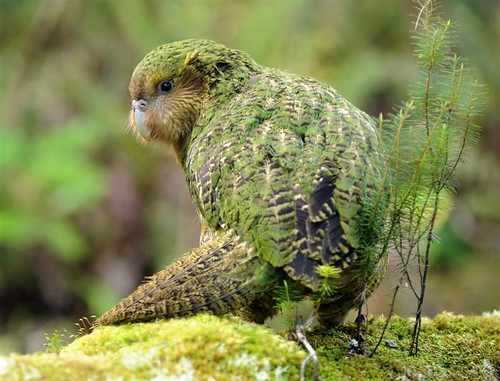 Another fruitless breeding season for Kakapo. Photo by Stephen Jaquiery. No kakapo chicks will hatch this year, putting further pressure on the endangered species.
Another fruitless breeding season for Kakapo. Photo by Stephen Jaquiery. No kakapo chicks will hatch this year, putting further pressure on the endangered species.
It is the second year in a row the kakapo, which is on the brink of extinction, will have no new additions to its small population.
Department of Conservation southern area manager Andy Roberts said the breeding season had begun with optimism but it was now highly unlikely any new kakapo chicks would be born this year.
For a species on the brink of extinction, the news was a setback but not a catastrophe for the Kakapo Recovery Programme, he said.
A failure to breed would not jeopardise the work of the recovery programme on Codfish Island, but it would slow the programme down.
"Kakapo are a long-lived bird so if there is a non-breeding season, there will be other years to breed," Mr Roberts said.
Hopes had been high for up to 15 nests on Codfish Island, but a record cold and very wet Southland spring had stopped the rimu fruit - an important food source for the kakapo chicks - from forming which in turn deterred the rare birds from mating.
It was believed female kakapo used the availability of the fruit as a cue for breeding, Mr Roberts said.
It was the second year in a row there had not been any new chicks, but alarm bells were not ringing at this stage, he said.
"While it would be ideal to have the kakapo breeding, this is part of life for the birds and is not highly unusual.
"It's disappointing, but with the poor spring, there was always a possibility breeding would be impacted this year."
It was getting very late in the breeding season and unless there was some last minute romance, everything pointed to the world kakapo population remaining at 125, Mr Roberts said.
The department also confirmed the kakapo population on Anchor Island in Dusky Sound had failed to breed this year.